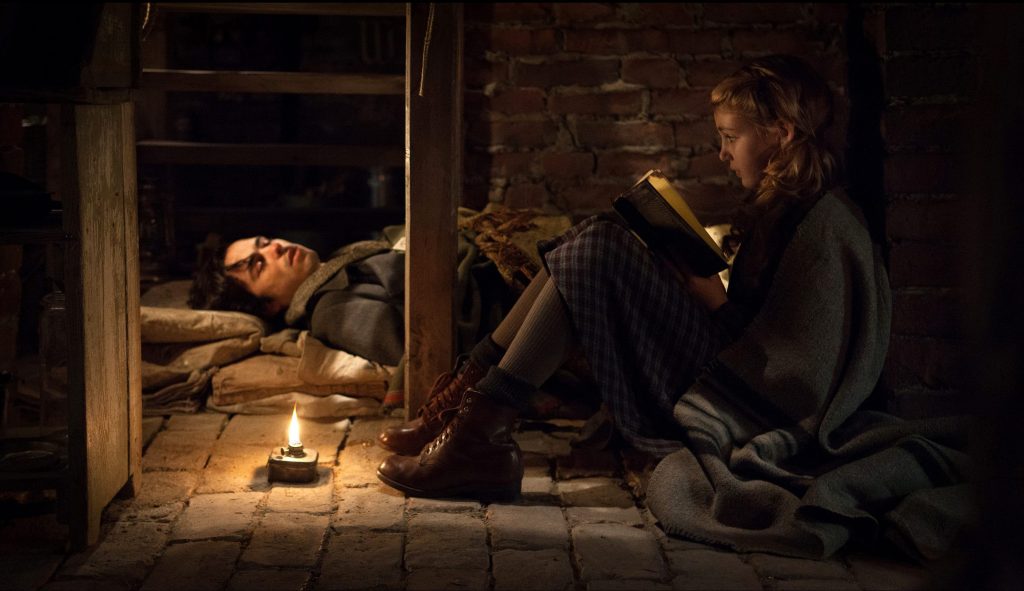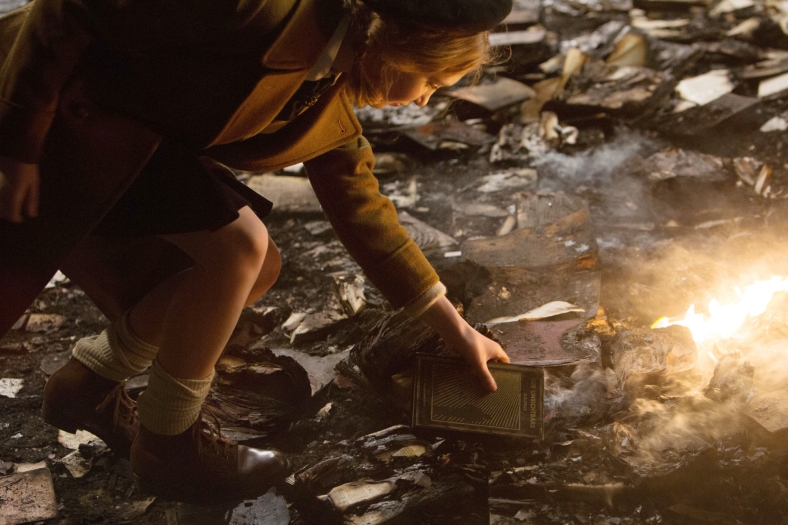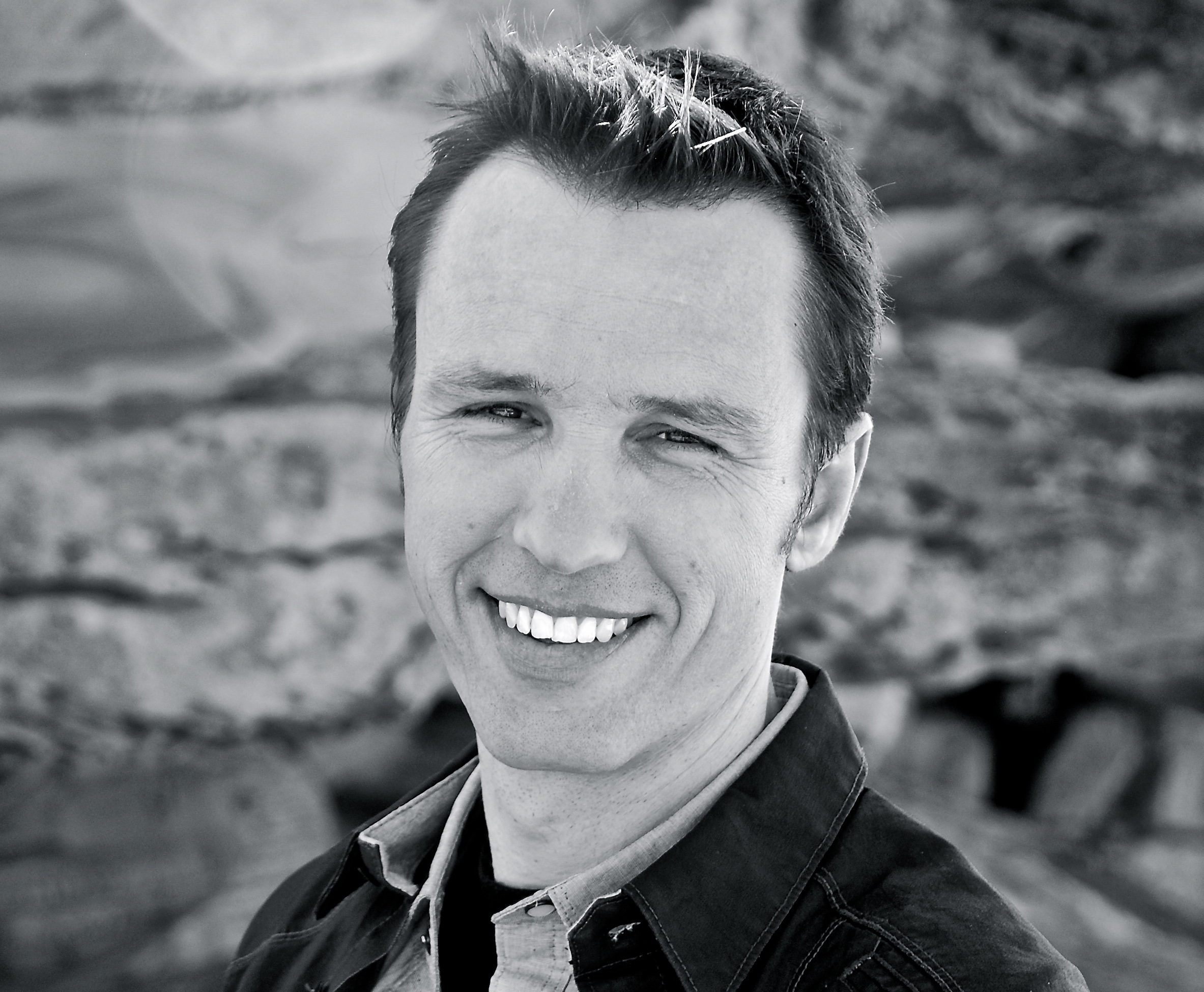Mistake-Maker Markus Zusak
In 2006 Markus Zusak released “The Book Thief”, a book set in Nazi Germany, narrated by Death. Winning over 12 awards and staying on The New York Times Best Seller list for over 230 weeks.
Exploring the themes of war, death, friendship and love, The Book Thief tells the story of young Liesel Meminger, adopted into the care of Hans and Rosa Hubermann and lives her life in Germany during World War Two. The war is a very distinct element in The Book Thief and influences Liesel’s life, intertwining itself within her relationships with her friends and her foster parents. Cliché as it may seem, The Book Thief is a book you won’t want to put down, it leaves you with an unquenchable thirst for more words and more stories about Liesel’s life.
The element that sets The Book Thief apart from any other book is that Death narrates the book. What may seem like a piece that is entirely historical fiction, The Book Thief deviates between philosophy, romance, friendship and the destruction of war.
When speaking about how the book became a film, Mr Zusak said his expectations were pretty low since the film rights were purchased in 2006.
“I actually didn’t think much about it for a long time, because the film rights were signed up back in 2006, not long after the book was first published,” he said.
“In the seven years in between, I also realised that most books that get signed up don’t ever make it to filming – so you have to keep your expectations pretty low.
“The fact that it’s come through is still a bit of a surprise. When I realised it was actually happening, I was thrilled about the director and the cast.
“You don’t ever think you’ll write a book that will go on to have Geoffrey Rush and Emily Watson in a movie based on it, not to mention such an amazing new talent like Sophie Nelisse in the main role.”
“I thought it would be my least successful book, mainly because I imagined that if someone actually liked it and tried to recommend it to their friends, they’d be asked, ‘Well, what’s it about?’ That person then has to say, ‘Well it’s set in Nazi Germany, it’s narrated by Death, nearly everyone dies…and it’s 560 pages long – you’ll love it.’
“The thing is, my belief that no-one would read it is really what allowed me to follow my own vision completely. If anything, I set out to write a book that really meant something to me, and it turned out to mean everything. Maybe that’s what people are drawn to.”
Originally writing the narrator as quite a sinister being, Zusak altered the voice of the character due it not feeling “quite right.”
“Most of the time when you write, you make decisions on gut feeling. The first version of Death didn’t feel quite right,” he said.
“Often, you’re just a little bit short or long of where you want to be – but then you make a drastic decision, like not using Death at all. I tried numerous other narration techniques, but arrived back at a slightly different voice of Death – one that was all-powerful in his summation of humans on one hand, but sympathetic and concerned on the other.
“In many ways he’s hurt by what he sees us do to each other, and ourselves. He tells the story of the book thief to remind himself that humans can still be beautiful and selfless, and worthwhile.”
“As for it standing out amongst other books, I really don’t know. I only know that when I’m writing I’m constantly searching for something that makes that particular book feel right. The Book Thief isn’t a perfect book by any stretch of the imagination, but maybe there’s something right about it in some way.
“There’s a big difference, and it’s that other feeling of rightness that I’m always looking for, and I don’t stop till I’ve found it.”

Words are very powerful. They can start wars, end hunger and change the course of history. What is a sentence/quote or paragraph that means a lot to you and why?
When I was a kid I felt like I’d won a race at Athletics, and I was placed in sixth position. When I cried to my dad, he said, ‘I thought you won as well, but you made one big mistake – you didn’t win by enough. You have to win by so much that no-one can take it off you.’
I always remember that quote when I write, but not in terms of winning or being better than anyone else, or anything like that at all. I think, ‘I want to write so much like myself that no-one else could have possibly written this.’
Do you think living and working in Australia as an author or anyone who comes from a creative background sometimes hinders career possibilities? Why/why not?
I wouldn’t change it, mainly because I think we get to learn a lot of our tough lessons down here, far away from the rest of the world; we’re out of sight in so many ways. Even if that can seem a bit isolating, if you ever get your big break, you’ve done the hard work with the luxury of very few people seeing it. You’re ready.
People are often critical of their own work and sometimes wish they had done something different. Is there any part of The Book Thief that you wish you had written a little differently or spent more time working on? Why/why not?
Don’t get me started. From the first page to the last, I would change more things than you could count. There are a few glaring examples of decisions I would reconsider, but I think that’s a good thing in the end. It’s the best I could do at that point in time…If you’re not looking back with a bit of embarrassment, it means you’re not ready to grow and write something better.

Readers are often amazed at the way Death describes the colours in the sky when people pass away. For you personally, what do you think the afterlife may be like and do you think ‘Death’ is going to be as curious and as haunted by humans as he is in The Book Thief?
I always just wanted Death to be the missing piece of us. That’s why he says, ‘If you really want to know what I look like, the closest thing would be to look in the mirror.’ In that sense, I really don’t know. What I do know is that death is the one great thing that gives our lives and actions meaning. Hopefully, knowing that death is waiting makes us more alive, and present, each day.
What were some of the biggest challenges or obstacles you had to overcome whilst writing The Book Thief over the three years, and how did they improve you as a person?
It’s always doubt. There’s a voice in your head the whole time, telling you how worthless your writing is. You know you’re a writer, though, when you keep showing up at the desk despite that voice. Ultimately you become old sparring partners. That voice gives you your harshest editorial eye, as you fight and feel your way through it.
I guess all of that improves you because you’ve come through a pretty tough self-examination. You’ve taken something on that you might not have been able to win.
What would you say to a young aspiring author who is hesitant about starting to write their own book?
Sometimes the old clichés are the best –
It’s not going to write itself!
The Book Thief has been rated No.1 on a lot of book stores best sellers and ‘Top Reads’ lists. What would you say to someone who is about to read The Book Thief for the first time?
I guess there comes a point where you have to stand behind the book and let it speak for itself. Maybe if I was to say anything at all, it would be this: ‘This book means everything to me. I hope it means something to you.’

The character of Liesel certainly goes through a lot of change over the course of the book; from learning to read, to stealing books and saving people. What was the most enjoyable part about writing Liesel’s story?
I’m not going to lie – it’s finishing. In the case of Liesel, I knew it would be a very tough, emotional ending to write, but I loved writing it for that reason as well. A lot of the interactions between her and her best friend Rudy were fun to write, too. I loved all of the characters, but those two especially.
If you could sit down for coffee with anyone in the world, dead or alive, who would it be and why?
That’s too hard. Sometimes Michelangelo. Sometimes I think it would be great to talk to both Eric Liddell and Harold Abrahams (of Chariots of Fire fame). As for people still alive today, it’s probably my parents, in their kitchen. They’re both great storytellers. When they told me their stories as I was growing up, they weren’t only telling me about their lives – they were teaching me how to write.
If you could summarise and describe your life in one word, what would it be and why?
I’ll take a hyphenated word, which might be sort of cheating: MISTAKE-MAKER. I chose that word because you have to make mistakes when you write. Fixing them and getting around the problem is where your true imagination and your best stories are waiting for you.
